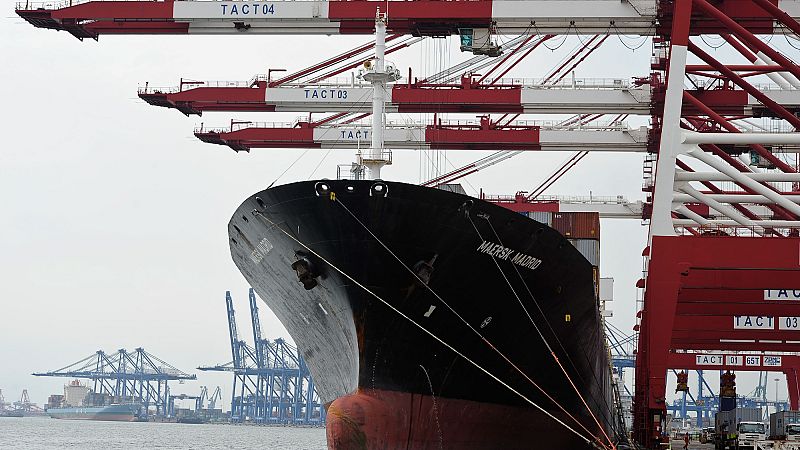
Trade frictions and policy uncertainty, notably linked to US tariffs, are expected to drive global growth down this year to its slowest pace since 2008 outside of outright global recessions.
That’s according to the World Bank’s latest Global Economic Prospects report, released on Tuesday.
Although the world was nearing a post-pandemic “soft landing” just six months ago, the bank noted that “the world economy today is once more running into turbulence”.
The group cut growth forecasts in nearly 70% of all economies. When it comes to global expansion, this total is projected to slow to 2.3% in 2025, nearly half a percentage point lower than the rate expected at the start of the year.
A global recession is not on the cards, but if forecasts for the next two years materialise, average global growth in the first seven years of the 2020s will be the slowest of any decade since the 1960s — according to the World Bank.
Aside from trade and policy uncertainty, barriers to global growth include rising geopolitical tensions, increasingly common extreme climate events, and slower-than-expected growth in major economies, which risks global spillovers.
“Outside of Asia, the developing world is becoming a development-free zone,” said Indermit Gill, the World Bank Group’s Chief Economist and Senior Vice President for Development Economics.
“It has been advertising itself for more than a decade. Growth in developing economies has ratcheted down for three decades—from 6% annually in the 2000s to 5% in the 2010s — to less than 4% in the 2020s. That tracks the trajectory of growth in global trade, which has fallen from an average of 5% in the 2000s to about 4.5% in the 2010s—to less than 3% in the 2020s. Investment growth has also slowed, but debt has climbed to record levels.”
Progress by emerging market and developing economies (EMDEs) in closing per capita income gaps with advanced economies and reducing extreme poverty is also anticipated to weaken, said the World Bank. The group called for more support to address long-standing challenges, including the effects of climate change.
Across EMDEs, governments should focus on containing inflation risks and strengthening fiscal resilience by reprioritising spending, said Tuesday’s report.
Global growth could rebound faster than expected if major economies are able to mitigate trade tensions, added the World Bank.
The analysis finds that if today’s trade disputes were resolved with agreements that halve tariffs relative to their levels in late May, global growth would be 0.2 of a percentage point stronger on average over the course of 2025 and 2026.







